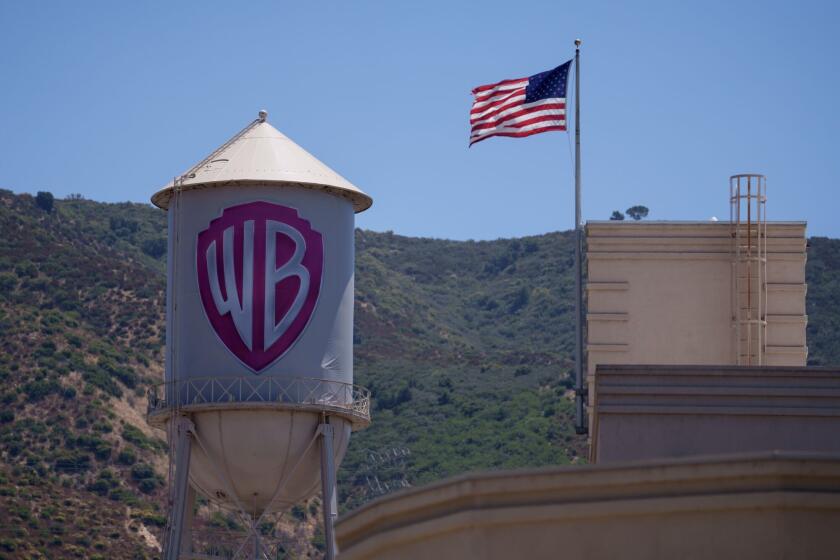Hollywood is relieved after Writers Guild of America reaches deal and avoids a strike

The union has been negotiating with the Alliance of Motion Picture and Television Producers. (May 2, 2017) (Sign up for our free video newsletter here http://bit.ly/2n6VKPR)
- Share via
The entertainment industry went back to work as usual on Tuesday after the Writers Guild of America reached a tentative deal in the early morning hours for a new contract with the major Hollywood studios.
Although the deal still has to be ratified by guild members, the possibility of a strike now sits squarely in the past, much to the relief of those in Hollywood who feared the specter of a work stoppage that would have had widespread impact throughout the business.
In a memo to its members on Tuesday, the WGA touted several gains it made in the negotiations, including increases in contributions to the guild’s employer-funded health plan. The plan was facing mounting deficits, but the union said the new contract “should ensure its solvency for years to come.”
The WGA also said it won substantial increases in minimum pay and residuals. It said residuals for pay TV would increase 15%, and streaming residuals would rise by about $15 million. Full details of the agreement have not been released.
Leaders in Hollywood expressed relief and satisfaction that cooler heads had prevailed in the sometimes contentious negotiations.
“It was great to wake up and find out there was an agreement,” said John Davis, the television and film producer who is working with Sony Pictures and 20th Century Fox on shows including NBC’s “The Blacklist” and “Timeless,” and ABC’s “Dr. Ken.”
He said all of his shows would have been disrupted if the writers had gone on strike. A walkout would also have affected his upcoming movie “The Predator,” written and directed by Shane Black, who is known to rewrite material during filming.
“I’m really, really happy they didn’t strike,” Davis added.
A strike would have had ripple effects throughout Hollywood, with technicians and other so-called “below-the-line” talent feeling the pinch.
“I’m certainly very happy that the parties have reached an agreement,” said Steve Dayan, secretary-treasurer of Teamsters Local 399, which represents location managers, drivers and casting directors.
He said his members have experienced an uptick in jobs as on-location production has returned to the Los Angeles area thanks to more generous state tax incentives.
“People were just getting back on their feet,” Dayan said. “A strike would have been devastating to our members. Any time you can avoid a strike is a good day.”
Though the new contract appeared to secure important gains for writers, some industry observers noted that details of the tentative agreement remain vague, especially regarding the union’s generous healthcare plan. The studios fund the plan by contributing a percentage of writers’ gross compensation.
“It will be interesting to see how much additional funding will go into the plan, how much of that funding will come out of writers’ gains in compensation, and whether the plan will be required to cut benefits,” said Dan Stone, an entertainment attorney at Greenberg Glusker.
The two sides announced an agreement at a little after 1:30 a.m. on Tuesday. The guild was negotiating with the Alliance of Motion Picture and Television Producers, the bargaining organization that represents the major Hollywood studios and networks.
The writers voted late last month to authorize a strike — a move widely seen as a play for leverage in the talks.
“Strikes aren’t good for anyone in the end, but sometimes the threat of a strike can focus both sides on solutions,” said Bill Mechanic, producer of “Hacksaw Ridge” and former head of Fox Filmed Entertainment. That seems like “that was the case here,” he said.
More to Read
Inside the business of entertainment
The Wide Shot brings you news, analysis and insights on everything from streaming wars to production — and what it all means for the future.
You may occasionally receive promotional content from the Los Angeles Times.












